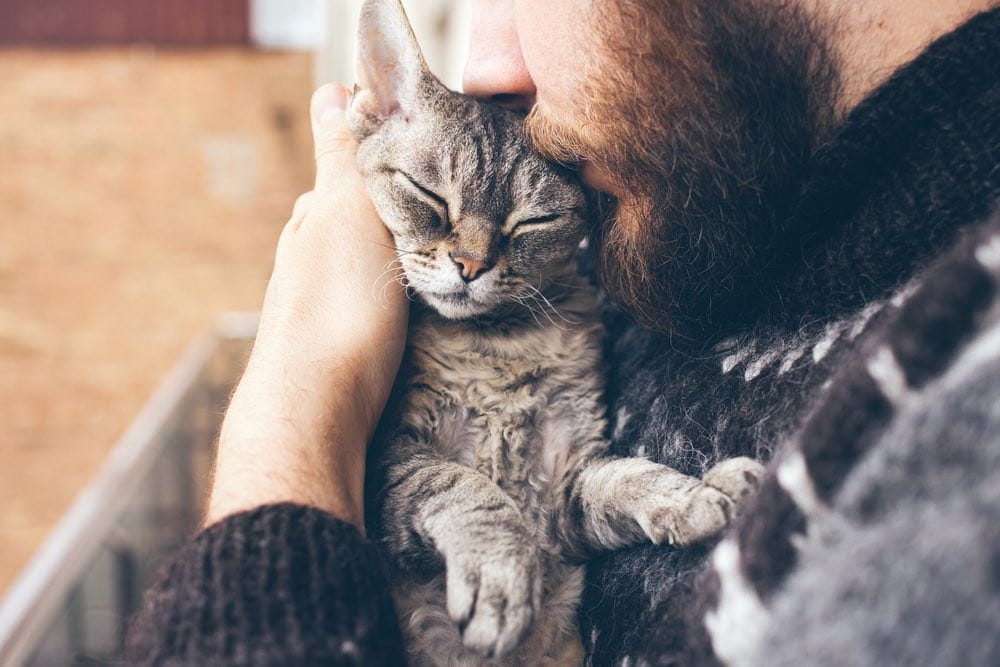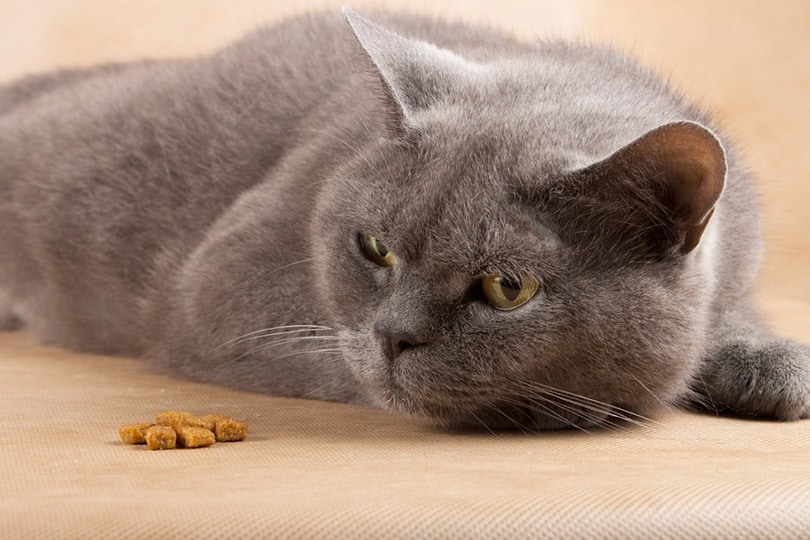Why Do Female Cats Spray? 7 Vet-Reviewed Reasons
By Oliver Jones
Updated on
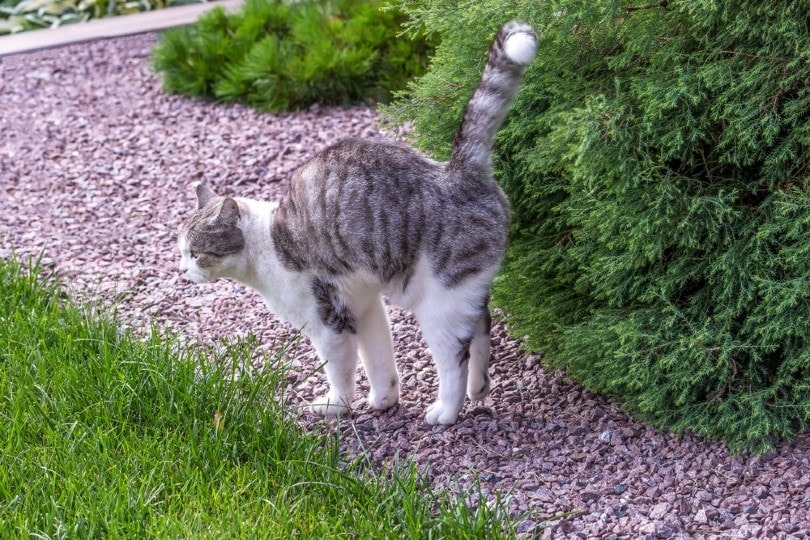
As with any pet, there are going to be certain behaviors that are confusing or concerning. Many cat lovers are faced with confusion over why their female cat is spraying. When you think of a cat spraying, it is usually thought to only be male cats that exhibit this behavior; however, it is possible for female cats to spray as well.
Spraying is generally considered an undesirable behavior, as the cat can stain certain objects and fill the household with a strong urine smell. Some owners may even worry if their cat has a possible urinary infection, and it’s important to differentiate spraying from urinating. Spraying in cats has many possible explanations behind this behavior, and with the help of a veterinarian or a feline behaviorist, you can determine which one applies to your feline friend.
If you want to learn some of the likely reasons behind your female cat spraying, this article will provide you with everything you need to know on the topic.
What Exactly Is Spraying in Cats?
Spraying is another term used for urine marking. It is a small amount of urine that contains pheromones and has a pungent smell that is deposited on a vertical surface. The cat may do this against vertical surfaces with little to no crouching involved. The tail may quiver while the cat sprays. In most circumstances, cats will use this behavior to mark their territory to ward off other cats or as a means of communication with the cats from their household. Some female cats will spray when in heat, and some neutered cats may also spray urine.
Cats will generally spray against walls, car tires, doors, tables, chair legs, or even couches or beds. The smell can easily be identified as spraying rather than typical urination due to its strong and pungent smell.
The 7 Possible Reasons for Your Female Cat Spraying
1. Heat Behavior
If your female cat is not spayed, she will go into heat during the breeding season which, in the Northern Hemisphere, runs from January to late fall. Some female cats will spray when in heat, and around 5% of neutered female cats may also occasionally spray. It’s imperative that you get your female cat spayed, as besides vocalization, changes in behavior and spraying, the risk of them getting pregnant is high.
The heat will continue until either they are spayed or end up getting pregnant, as the cycle repeats every few days to 3 weeks and lasts around 7 days. Even indoor cats will attempt to escape the house, and it only takes a single moment for them to sneak out the door.
2. Stress and Anxiety
If your cat has recently gone through a stressful situation, they are likely to become anxious. This can cause them to start spraying around the house. Cats like their routine and familiarity, and most changes in their household and environment will cause some degree of stress, although they may not show it obviously.
If a cat is suddenly moved to a new household, they are likely to exhibit signs of anxiety, one of which may also be spraying. This is typically caused by moving houses, introducing new pets or young children, presence of new cats in the neighborhood, being attacked by other pets, experiencing a traumatic event, or even after the cat has undergone surgery.
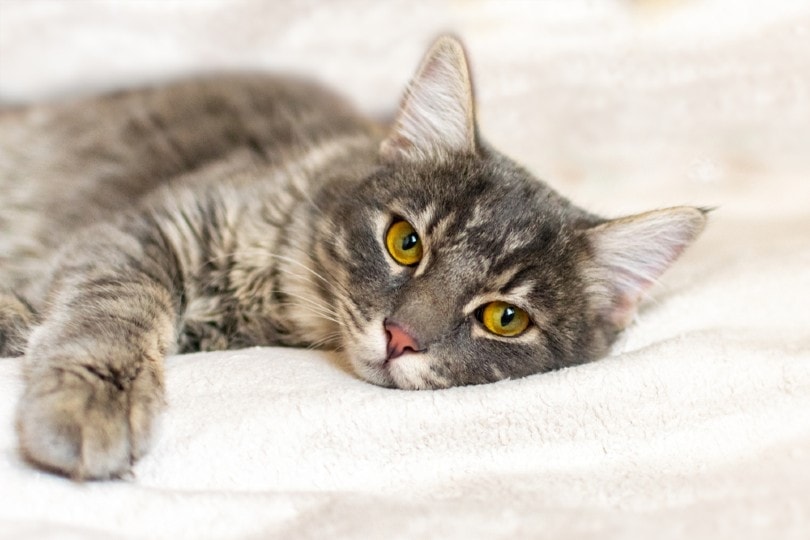
3. Multi-Cat Household Aggression or Intolerance
Sometimes female cats will spray because there are multiple cats in the household, or they are not getting along with another particular cat. In those instances, some cats may use spraying to claim ownership within the household due to sharing and competition for resources, such as food and water bowls, toys, litter boxes or resting areas, or to show sexual receptivity and availability if they are not fixed. Cats may also feel stressed because the household is too crowded, and the overstimulation of different smells from other cats becomes too much for them to handle.
Cats like their own space and may not appreciate a large group of cats invading their household, even if it is your pet cats. If you have an older cat who’s been living alone and suddenly a new cat enters the household, this may cause the older cat to spray.
4. Neighboring Cats and Territorial Disputes
Cats do not like unwelcome visitors. They see this as a threat or an invasion of territory. A strange cat that decides to step foot on your property can cause your cat to feel uncomfortable and stressed. They will start to spray to leave their scent around the yard and indoors, or in areas where the new cats seem to spend most of their time.
If the new neighborhood cat is not neutered or spayed, they are more likely to spray in order to attract a mate and mark their territory, and that can cause your cat to spray in response.
Even a new cat that is hanging around your house without entering may lead to stress for your indoor cat, as they will be able to smell each other and sometimes even see each other.
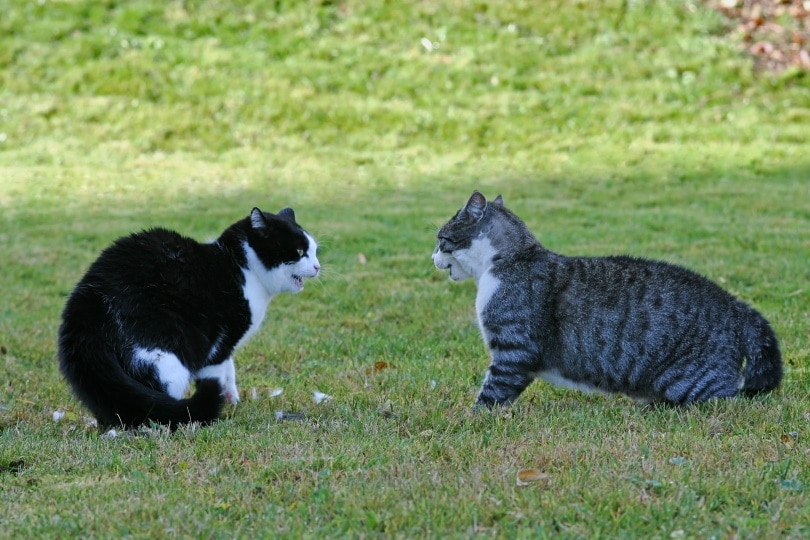
5. Routine Disruption
Cats love the comfort and normality of routines. This includes a similar feeding time, bedtime, and playtime. If their routine gets drastically disrupted, they can start to spray to show their anxiety and distress over the situation.
Routine disruptions can negatively affect your cat’s emotional state and health, which may result in spraying and other unwanted behaviors occurring around the household.
6. Litter Box Trouble
It’s no surprise that many cats are fussy over their litter boxes. A change in litter box size, location, or litter itself may cause stress to your cat, which in turn could exhibit as occasional spraying, even in the proximity of the litter box or elsewhere in the household. However, do not confuse spraying with inappropriate urination, where the cat is urinating outside of the litter box due to any of the above-mentioned reasons that have caused them anxiety and stress.
Sometimes cats do not like the size of the litter box or even the choice of litter media. Cats cover their waste and sometimes the texture of the litter media is not right for them to do so.
If you have multiple cats that use the same litter box, this can become an issue for some of the cats. They may refuse to use it because of all the different smells left behind in the litterbox and they will not hide their frustration over the matter. The general rule is that the number of litter boxes needs to be the number of cats plus one.
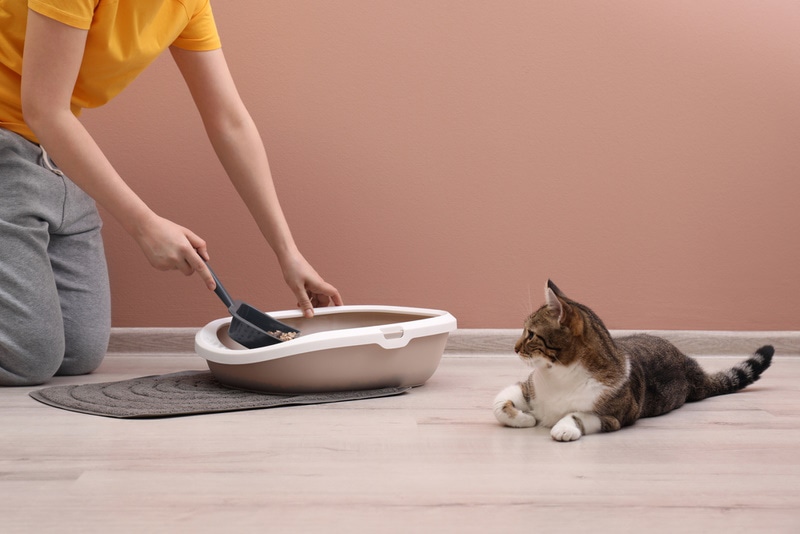
7. Medical Issues
This is more serious than any other reason behind spraying in cats. Some health conditions, such as urinary tract issues or kidney problems, may cause a change in the cat’s urination habits, alongside other signs. Sometimes, this may seem as if the cat is spraying and leaving puddles of urine outside of the litter box, while in reality, they are urinating more frequently, straining while attempting to pee, or not being able to get in the litter box due to mobility issues.
Only a veterinarian can treat these issues, and if you notice that your cat is spraying frequently, meowing in pain while urinating, or only passing small droplets of urine at a time that may be bloody, they might be suffering from an underlying health issue and prompt professional medical treatment is essential to help your cat feel comfortable.
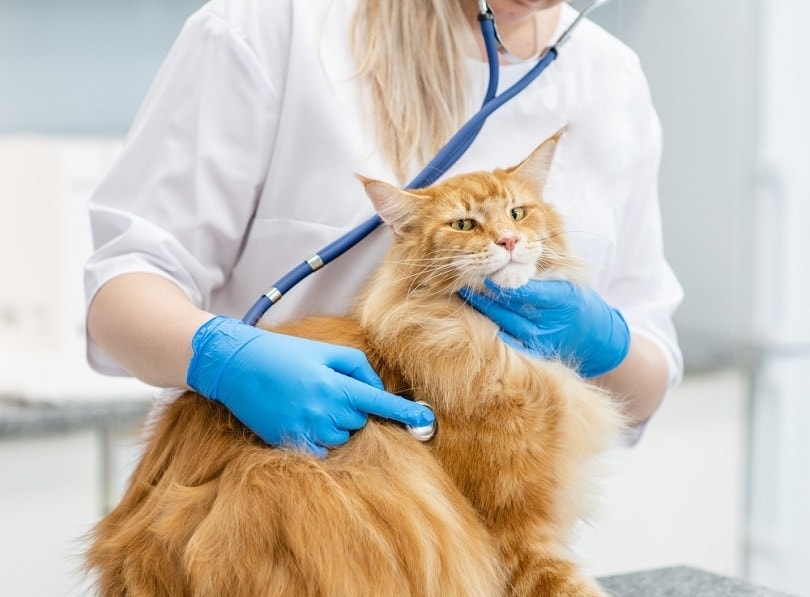
How to Keep This Behaviour Under Control
With the help of your vet, getting down to the root cause of the problem and addressing it is the first step in managing the spraying issue. If your cat is an intact female or you have a kitten that is becoming sexually mature, by spaying your cat, you are going to prevent any heat related behavior, including spraying.
If there are other reasons for spraying, such as stress, anxiety, changes in the household or the environment, new cats in the neighborhood, or something else, the advice will be specific for each case.
Protect Your Property
In cases where strange cats are wandering onto your property, you should make sure precautions are in place to prevent this from happening. Not only do stray cats pose a risk to your cat, but they can make your cat feel unsafe in their own home. The same applies to indoor cats, as even though they may not have direct contact, they are still aware of each other.
Try and block the strange cat from making their way into your home by fencing off your property as best as possible and speaking to your neighbors if you suspect the cat is theirs. This can help to keep the cat out of your garden, but in some cases, it may be challenging, as cats have a mind of their own.
Use a microchip or magnetic cat flap, that will only let your cat in and out of the house, if your cat has outdoor access. If your cat is still getting anxious due to the presence of another cat in your garden, try pheromone diffusers to provide them with some reassurance. If there are feral or stray cats in your area, speak to your local vet or shelter to see if they can get neutered and vaccinated so that they pose less of a threat to your cat.

Eliminate Stressful Situations
Do not overwhelm your cat or put them at risk of stressful situations. You should try to keep their routine as simple and similar as possible. This means making a scheduled feeding or playtime. Animals have a biological clock that tells them approximately what comes next in their daily routine.
Moving houses with your cat should be done as stress-free as possible. This means that the cat’s routine should be disrupted as little as possible during the moving process and their comfort items should not be washed to retain their familiar scent. Using pheromone diffusers and consulting with your vet well in advance of the move is crucial to make the experience less stressful both for your cat and you.
Multi-Cat Households
Make sure you have the necessary requirements if you want to have more than one or two cats. Although we know how hard it is to resist bringing another cute feline into your home, you need to first determine if the available space can comfortably house all your cats. Cats are not as social amongst their kind as dogs are, and space is important. They do not enjoy sharing resources, meaning there should be plenty of space, beds, toys, food and water bowls, and litter boxes to accommodate each cat.
If they choose to play together, great, but if they want to avoid each other, there needs to be enough room to allow this. Also, make sure every cat is getting their own private bonding time with you based on their individual needs.
Ensure that your cat has a clean and desirable litter box in a private and secluded location, and there should be one extra on the top of the total number of cats you have. So, for three cats, you need at least four litter boxes. Just like you do not like using a dirty toilet or bathroom, your cat does not fancy it either. You will go through trial and error trying to find a litter box shape or size that each cat likes or even different litter media. Once you have found a litter box that each cat will willingly use, it is important to clean the litter box regularly to keep it from smelling.

Conclusion
Now that we have discovered possible reasons your female cat may be spraying, it is time to determine which scenario most likely applies to your feline friend. Finding the source of the problem is the first step to successfully stopping it from happening again. It is recommended to seek the advice of a feline veterinarian to rule out health issues as a possible cause. If your cat does not stop spraying and you find it difficult to rectify the reason behind the behavior, your vet and feline behaviorist can give you tips and advice on solving this issue.
We hope that this article has helped you understand how spraying in cats works, and how you can identify and prevent your cat from spraying around the house.
See also:
Featured Image Credit: Helen Liam, Shutterstock



